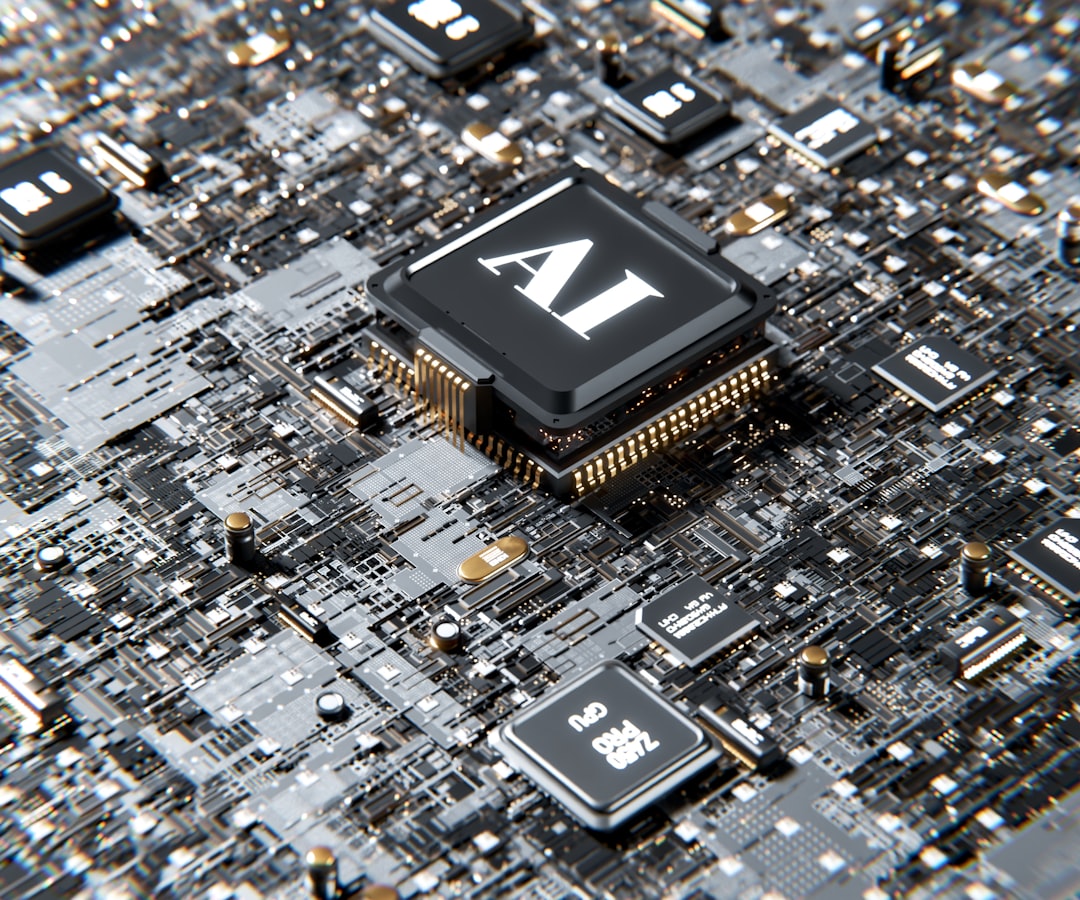AI algorithms' bias, stemming from training data, can lead to unfair outcomes in hiring, lending, and criminal justice. To address this, developers must collect diverse datasets. Privacy concerns and data protection are paramount as AI processes vast personal information. Explainable AI and accountability are crucial for fairness and user trust, especially in high-stakes sectors. The rapid development of AI impacts employment and society, requiring specialists in AI ethics and project management. Robust ethical guidelines and regulations, addressing data handling and transparency, are necessary for AI integration.
In an era where Artificial Intelligence (AI) is rapidly transforming our world, ethical considerations in AI development have never been more critical. As AI algorithms permeate various aspects of society, from healthcare to employment, understanding and mitigating biases, protecting privacy, ensuring transparency, and addressing societal impacts are paramount. This article delves into key ethical dilemmas, exploring bias and fairness, data protection, accountability, employment implications, and the crucial need for guidelines and regulation in the fast-evolving landscape of AI.
- Bias and Fairness in AI Algorithms
- Privacy Concerns and Data Protection
- Transparency and Accountability of AI Systems
- Impact on Employment and Society
- Ethical Guidelines and Regulation for AI Development
Bias and Fairness in AI Algorithms

AI algorithms are only as unbiased as the data they are trained on. When machine learning models learn from biased or incomplete datasets, it can lead to unfair outcomes in areas such as hiring, lending, and criminal justice. For instance, a study revealed that AI-enhanced virtual reality job simulation tools exhibited gender bias, affecting the performance ratings of female candidates. This is concerning given the increasing reliance on generative AI creative tools for decision-making processes.
To ensure fairness, developers must prioritize diversity in their data collection methods. This involves actively seeking out and including underrepresented groups to prevent the reinforcement of existing societal biases. As we explore future trends in artificial intelligence, it’s crucial to keep bias and fairness at the forefront. Even the seemingly neutral tasks can be influenced by algorithmic biases, which is why learning machine learning from scratch with a focus on ethical considerations is more important than ever. Moreover, understanding the implications of these algorithms extends beyond their immediate applications; it impacts how we interact with technology in our daily lives, including processes automated through robotics process automation (RPA) benefits.
Privacy Concerns and Data Protection

As AI continues to permeate various aspects of our lives, privacy concerns and data protection have emerged as paramount ethical considerations for ai researchers. The vast amounts of personal information collected and processed by AI systems, from predictive analytics applications to deep learning algorithms comparison, raise questions about who has access to this data, how it’s used, and how it’s secured. AI developers must ensure that user consent is obtained, data is encrypted, and robust security measures are in place to protect against unauthorized access or breaches. Failure to address these issues can lead to significant privacy invasions and loss of trust among users, highlighting the importance of integrating ethical practices into every stage of AI development.
Moreover, the introduction of AI technologies, such as computer vision object recognition, brings unique challenges in data protection. Algorithms designed for tasks like facial recognition or image classification require vast datasets that may include sensitive personal information. It is crucial for developers to be transparent about data collection methods and ensure that individuals have control over their data. By adopting stringent data governance practices and staying compliant with relevant regulations, AI researchers can navigate these ethical dilemmas while reaping the benefits of advanced predictive analytics applications.
Transparency and Accountability of AI Systems

AI systems, given their increasing prevalence and impact on our daily lives, must be developed with transparency and accountability at the forefront. As AI continues to evolve, understanding its inner workings becomes essential for ensuring fairness, mitigating biases, and promoting trust among users. Developers and researchers must strive for explainable AI, where the logic and decision-making processes behind algorithms are clear and understandable to both technical and non-technical audiences. This transparency is crucial, especially in high-stakes scenarios like healthcare, education, and law enforcement, where errors or biases could have severe consequences.
Moreover, accountability involves setting clear guidelines for how AI systems are monitored, evaluated, and corrected when necessary. As we look back at the artificial intelligence history timeline, it’s evident that ethical considerations have often been an afterthought. However, recent advancements in machine learning basics and growing public awareness demand a more proactive approach. Give us a call at machine learning basics to discuss how we can foster responsible AI development, ensuring that these powerful tools serve humanity without compromising on ethics or transparency. For instance, in the realm of ai-driven personalized learning, especially for students with special needs, transparent algorithms can adapt to individual needs while maintaining accountability for their effectiveness and safety.
Impact on Employment and Society

The rapid advancement of AI technology has had a profound impact on employment and society as a whole. As AI becomes more integrated into various industries, there are concerns about potential job displacement. Many routine tasks that were once performed by humans are now automated, leading to fears of widespread unemployment. However, it’s essential to consider that while some jobs may be affected, new opportunities also emerge. The shift towards AI-driven systems requires a workforce skilled in managing and developing these technologies, creating a demand for specialists in AI ethics considerations, project management methodologies, and data analysis.
The social implications of AI are multifaceted. On one hand, AI-generated art and content have sparked debates about creativity and ownership, with some arguing that it devalues human artistic endeavors. On the other hand, AI offers unprecedented opportunities to enhance various aspects of society. For instance, AI project management methodologies can streamline processes, improve efficiency, and enable more effective resource allocation. By addressing these ethical considerations, we can ensure that the benefits of AI are accessible and beneficial to all, shaping a future where humans and technology coexist harmoniously. Visit us at [training data quality impact anytime] to explore more on these topics.
Ethical Guidelines and Regulation for AI Development

As AI continues to permeate various aspects of our lives, from virtual reality experiences to financial services, establishing robust ethical guidelines and regulations for its development becomes increasingly paramount. The rapid evolution of artificial intelligence necessitates a thoughtful approach to mitigate potential risks associated with its use, ensuring it aligns with societal values and human well-being. One significant step is the implementation of comprehensive regulatory frameworks that govern data handling, transparency in AI decision-making processes, and accountability for developers and users alike.
These guidelines should specifically address issues related to training data quality impact, emphasizing the need for diverse, unbiased datasets. For instance, an ai-enhanced virtual reality experience must be designed with care to avoid perpetuating harmful stereotypes or creating a distorted view of reality. Moreover, regulations could mandate clear explanations of AI algorithms’ workings, empowering users to understand and challenge potential biases. In areas like finance, where ai is employed for fraud detection, these guidelines can ensure fairness and prevent discrimination by promoting transparent practices in data collection and model development. To foster responsible AI development, organizations should encourage ongoing research and dialogue, and we at Generative AI Creative Tools are here to support this mission, giving us a call to discuss how we can navigate the ethical landscape together.
As we navigate the ever-evolving landscape of artificial intelligence (AI), it’s crucial to strike a balance between technological advancement and ethical considerations. The discussions on bias, privacy, transparency, employment impacts, and regulatory guidelines highlight the complex web surrounding AI development. By addressing these concerns, we can ensure that AI serves humanity with fairness, protects user privacy, promotes accountability, and ultimately fosters a positive societal impact. Ethical AI development is not just a recommendation but a necessity for a responsible future where technology enhances our lives without compromising core values.





Leave a Reply